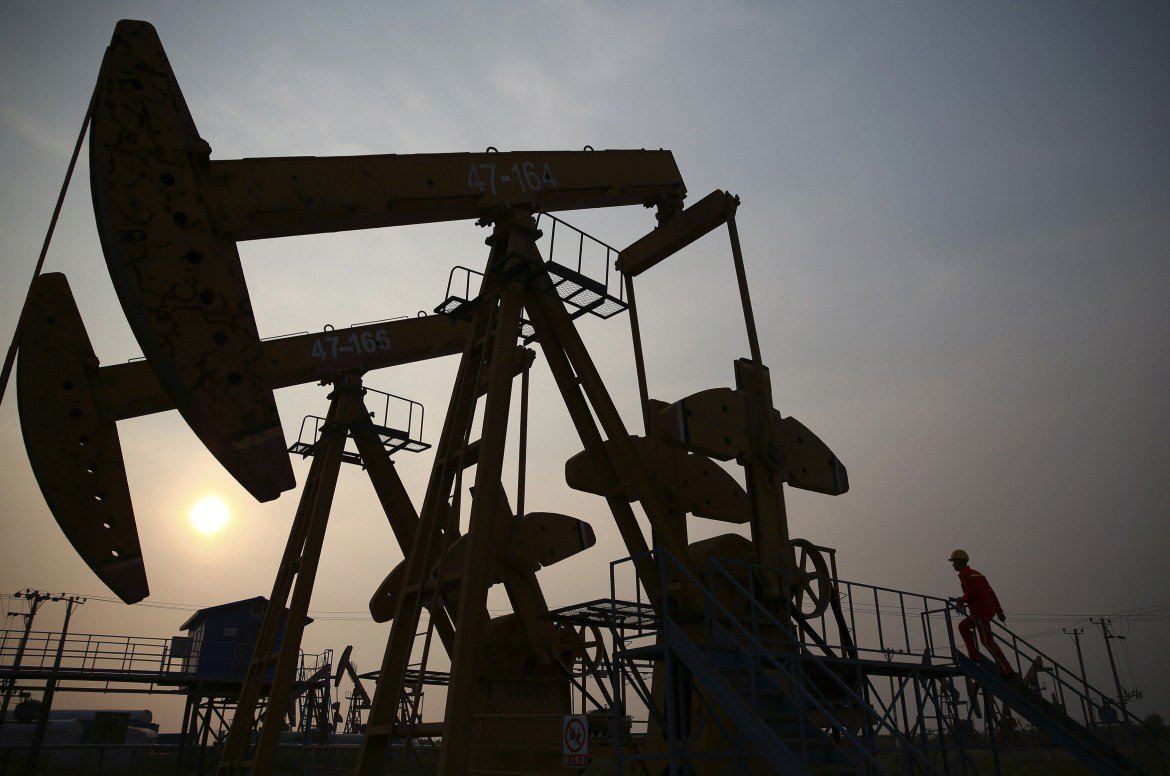Analysis
A new global financial bubble, but it’s not real estate this time
It’s like 2008, but worse. A new financial crisis is brewing in the United States around the oil and gas industry.

Anybody who thought the problems of the world economy would stop at the failed recovery from the 2007-2008 crash (in Europe, to be sure, we still hang on Draghi’s words) is now forced to acknowledge there could be a new systemic crisis around the corner.
The United States is once again the epicenter of this new financial earthquake. This time, however, it’s not the real estate industry lighting the powder keg, as it did 10 years ago, but the energy sector. The one to watch is the bond market linked to shale gas and oil — that is, the oil and gas extracted from rocks using hydraulic fracture drilling (fracking).
But first things first. In the last 15 years, the number of shale gas extraction wells in the U.S. have gone from 20,000 to 300,000, with a daily crude oil production of 4.3 million barrels — 50 percent of the mining activity in the country. Buoyed by Barack Obama’s pledge two years ago to make America energy independent by 2035, there’s been an enthusiastic rush to exploit fossil fuel reserves trapped deep in underground rocks.
Enthusiasm, euphoria, confidence. The same feelings that guided the choices, and calculations, of so many investors looking to reap the financial benefits of a booming business. Indeed, these expectations have allowed the sector to drain large amounts of capital ($48 billion in just the last four years), even through complex and high-risk financial instruments, without which it would be impossible to support the elevated (to put it mildly) production costs. The U.S. is back in the nightmare of junk bonds.
In short, another bubble has been inflated, and the price of oil has already burst.
To give a better idea of what we’re talking about, just remember that we are dealing with a sector in which over $200 billion have been invested since 2003, including infrastructure, supporting technology and equipment. Compare that with the price of crude oil, which, in the same period, went from $30 a barrel to over $140 (in 2008), before falling to the current $40.
In essence, future projections of fracking success — increasingly supported by the cost of crude oil, on which the investors and producers based their behavior and optimism — in the light of current market dynamics turned out to be quite risky. And they’re left holding the bill.
In the first quarter of this year alone, as many as 21 companies in the industry have failed, defaulting on bonds worth $31.4 billion. That’s coupled with the fact that many investors are now rushing to dispose of securities considered “investment grade,” or very high risk. Could there be a domino effect? At this point, one shouldn’t rule it out.
Two years ago, a study by J.P. Morgan argued that if the price of oil would remain for another three years at around $65 per barrel, 40 percent of the junk bonds issued by U.S. energy companies would default. And now that we’re around $40?
Moreover, the specific situation of the companies and U.S. bonds linked to the shale gas and oil industry is only part of the problem. In the global financial system, toxic assets and leveraged products (investments exceeding ownership interests) still circulate in abundance. Just remember that Deutsche Bank alone has an exposure in derivatives totaling €75 trillion, 20 times the German GDP.
Adding fuel to the fire — it is appropriate to say — there is, finally, the failure of the summit (link in Italian) of oil-producing countries, held in Doha, Qatar, on April 17. Production will not freeze, despite low prices.
It’s a war that the OPEC countries, led by Saudi Arabia, are fighting (successfully we might say) against emerging oil powers, starting with the United States. If the objective of the cartel is to strangle competition, making costs of production unsustainable, the current difficulties of the American shale gas sector confirms that its strategy is bearing fruit.
The trouble is that it’s not just oil market control at stake, but the stability of the world economy.
It is no coincidence that the only country not worried about the situation is Qatar, which, on the eve of the summit, bet on its failure by buying options (derivatives that allow it to take advantage of underlying price volatility) on the further decline of oil prices. A classic bear position (aka short), which by reading the market trend may end up determining it. With incalculable risks.
Originally published at http://ilmanifesto.info/in-arrivo-dagli-usa-la-nuova-bolla-finanziaria-non-piu-mutui-ma-gas/ on 2016-04-23
